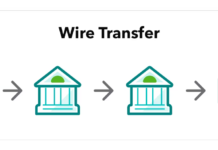Real Estate is a popular technique of hiding the dirty money across the world. It involves multiple methods of concealing the money. In the Middle Eastern countries real estate is a popular tool of laundering. It is a magnet for tainted money. But more than that it is one of the most popular tools because of the huge amounts involved in transactions. In a single instance, the launderers can change the color of large sums of money.
Every day criminals discover new ways to clean funds or hide their means of income. One of the ways that is becoming increasingly more well-known is real estate money laundering.
In the Middle East region, Dubai dominates the real estate market. Because, it is built to attract foreign buyers, the emirate is dominated by towers of upscale flats and man-made islands studded with luxury villas.
Property developers and real estate agents accept huge sums from politically exposed persons—individuals entrusted with a prominent public function, as well as their families and associates—and other suspicious buyers. Even individuals targeted by international sanctions use Dubai property to launder money due to weak regulations and lax enforcement.
There are many methods used to hide money in purchasing and selling property, such as houses, which can be bought in pure cash. Moreover, real estate is interesting technique for launderers as
- Real estate money laundering is one of the most established and successful technique. Furthermore, it is tried and tested.
- Certified Anti Money Laundering Expert course speaks of some of the techniques of real estate laundering which can help in framing the regulations.
- Some red flag behaviors during real estate purchasing may point towards illegal money usage.
- There are ways compliance officers can track down these criminals using AML laws.
Real Estate Money Laundering Methods
There are some common ways launderers use real estate as a means of illicit money movement. Some of the most commonly known are listed below.
- Using third parties, commonly individuals without a criminal record, to purchase the property and avoid directly naming the criminal during the payment process.
- Using a credit-line to hide the true identity of the purchaser. This is a layering technique, which helps in disguising the source of illegal money.
- Adjusting property values to either underestimate or exaggerate a price, allowing for illegal funds to be laundered to pay off the debt.
- Arranging cash deposits in order to make a house purchase, which avoids activating transaction statements.
- Legitimizing funds through rent. Many times tenants prefer to pay the rent in cash.
There are some common tactics that may signal the potential for risk during real estate transactions, which may include:
- Criminals offering money to individuals to use their name to obtain loans. Benami Property is a technique of buying the property in the name of some body else. Individuals with good credit rating obtain the loans to buy real estate. But later introduces the illegal funds for making down payment to real estate owners. This hides the beneficiary and protects the identity of the criminal.
- Someone offering to pay you above market rate for a lease, which can commonly mean they plan on using the property to conduct some form of criminal activity.
- Someone offering to pay your business rent just to “hold the place.” In this scenario, it is likely that they just need to have the money go through the financial system in the form of rent so it can come out in a usable form.
Preventing Real Estate Laundering
It is possible that by being one step ahead, we can track and report suspicious before it is too late. Some of the ways we can do this include:
- Forcing a declaration of assets to governments or officials. If everyone declares what they own, it will be difficult to hide assets.
- Hiring Certified Anti Money Laundering Professionals to know the face of the beneficiary and keep track of who is behind each account. This allows for the identity verification.
- Requiring the registration of land from the real beneficiary. This proof should improve accountability and show the true origins of money globally.
Summary
Real estate is a growing market for money laundering. However, the financial institutions need to enforce the strict rules to monitor real estate transactions. Financial Institutions need to enforce how criminals can launder money through property purchases. The courses like Certified Anti Money Laundering Professional help the banking professionals to keep up with the changing trends.




